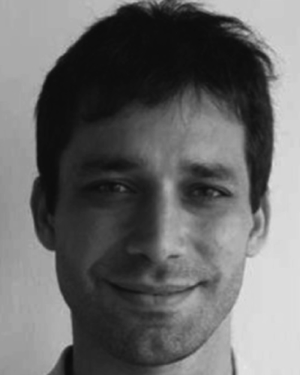Abstract:
Resource sharing with its implied mutual interference has been considered a major concern for running applications of multiple tenants in shared cloud datacenters. Beside...Show MoreMetadata
Abstract:
Resource sharing with its implied mutual interference has been considered a major concern for running applications of multiple tenants in shared cloud datacenters. Besides its security benefits, the isolation of traffic might ensure a quality of service (QoS) performance guarantee avoiding interference among tenants. Traffic isolation can be achieved by dedicating the usage of link resources in the network to a single tenant preventing its sharing among others. Accordingly, tenants should be connected through an edge-disjoint tree to enable isolated communication among its hosts. In this paper, we study the problem of establishing edge-disjoint trees in common datacenter topologies. We show that the availability of such trees is highly affected by the mapping of the tenants to hosts of the topology. Specifically, with the flexibility to map tenants in the datacenter topology, we describe a mapping algorithm and an optimal tree establishment for the optimization problem. Given the mapping of the tenants, we prove the problem turns out to be NP-Hard and provide comprehensive heuristics for the problem. Finally, we conduct experiments using real workloads to examine tree availability under various scenarios.
Published in: IEEE/ACM Transactions on Networking ( Volume: 32, Issue: 4, August 2024)

Mellanox Technologies (Nvidia), Haifa, Israel
Ori Rottenstreich (Member, IEEE) received the B.Sc. degree (summa cum laude) in computer engineering and the Ph.D. degree from the Technion, Haifa, Israel, in 2008 and 2014, respectively. He is currently an Associate Professor with the Department of Computer Science and the Department of Electrical and Computer Engineering, Technion. From 2015 to 2017, he was a Post-Doctoral Research Fellow with Princeton University.
Ori Rottenstreich (Member, IEEE) received the B.Sc. degree (summa cum laude) in computer engineering and the Ph.D. degree from the Technion, Haifa, Israel, in 2008 and 2014, respectively. He is currently an Associate Professor with the Department of Computer Science and the Department of Electrical and Computer Engineering, Technion. From 2015 to 2017, he was a Post-Doctoral Research Fellow with Princeton University.View more

Mellanox Technologies (Nvidia), Haifa, Israel
Jose Yallouz received the B.Sc. and Ph.D. degrees from the Electrical Engineering Department, Technion, in 2008 and 2016, respectively. He is mainly interested in computer networks, algorithm design, survivability, and SDN and NFV architectures. He was a recipient of the Israel Ministry of Science Fellowship in Cyber and the Advance Computing Award.
Jose Yallouz received the B.Sc. and Ph.D. degrees from the Electrical Engineering Department, Technion, in 2008 and 2016, respectively. He is mainly interested in computer networks, algorithm design, survivability, and SDN and NFV architectures. He was a recipient of the Israel Ministry of Science Fellowship in Cyber and the Advance Computing Award.View more

Mellanox Technologies (Nvidia), Haifa, Israel
Ori Rottenstreich (Member, IEEE) received the B.Sc. degree (summa cum laude) in computer engineering and the Ph.D. degree from the Technion, Haifa, Israel, in 2008 and 2014, respectively. He is currently an Associate Professor with the Department of Computer Science and the Department of Electrical and Computer Engineering, Technion. From 2015 to 2017, he was a Post-Doctoral Research Fellow with Princeton University.
Ori Rottenstreich (Member, IEEE) received the B.Sc. degree (summa cum laude) in computer engineering and the Ph.D. degree from the Technion, Haifa, Israel, in 2008 and 2014, respectively. He is currently an Associate Professor with the Department of Computer Science and the Department of Electrical and Computer Engineering, Technion. From 2015 to 2017, he was a Post-Doctoral Research Fellow with Princeton University.View more

Mellanox Technologies (Nvidia), Haifa, Israel
Jose Yallouz received the B.Sc. and Ph.D. degrees from the Electrical Engineering Department, Technion, in 2008 and 2016, respectively. He is mainly interested in computer networks, algorithm design, survivability, and SDN and NFV architectures. He was a recipient of the Israel Ministry of Science Fellowship in Cyber and the Advance Computing Award.
Jose Yallouz received the B.Sc. and Ph.D. degrees from the Electrical Engineering Department, Technion, in 2008 and 2016, respectively. He is mainly interested in computer networks, algorithm design, survivability, and SDN and NFV architectures. He was a recipient of the Israel Ministry of Science Fellowship in Cyber and the Advance Computing Award.View more


